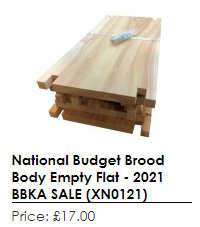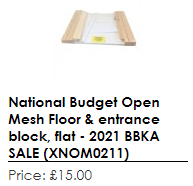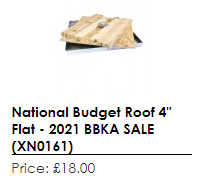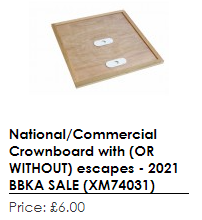Personally, when it comes to equipment, I think beginners should stay away from “Beginner’s Kits”. Mainly because of the stuff you don’t need and secondly because of the dubious quality of some kits where they try and give you all the stuff you don’t need at a cheap enough price.
Here is the basic equipment that you DO need:
Protective Clothing (including gloves)
I say protective clothing because some people choose not to wear a full bee suit.
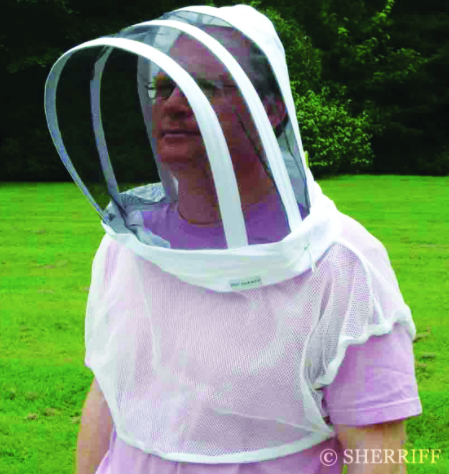
Veil Only
Some choose only to wear a veil. This one pictured is a Sherriff “Bee Farmer” vest and hood. Picture is theirs too.
You can get a cheaper version on ebay.
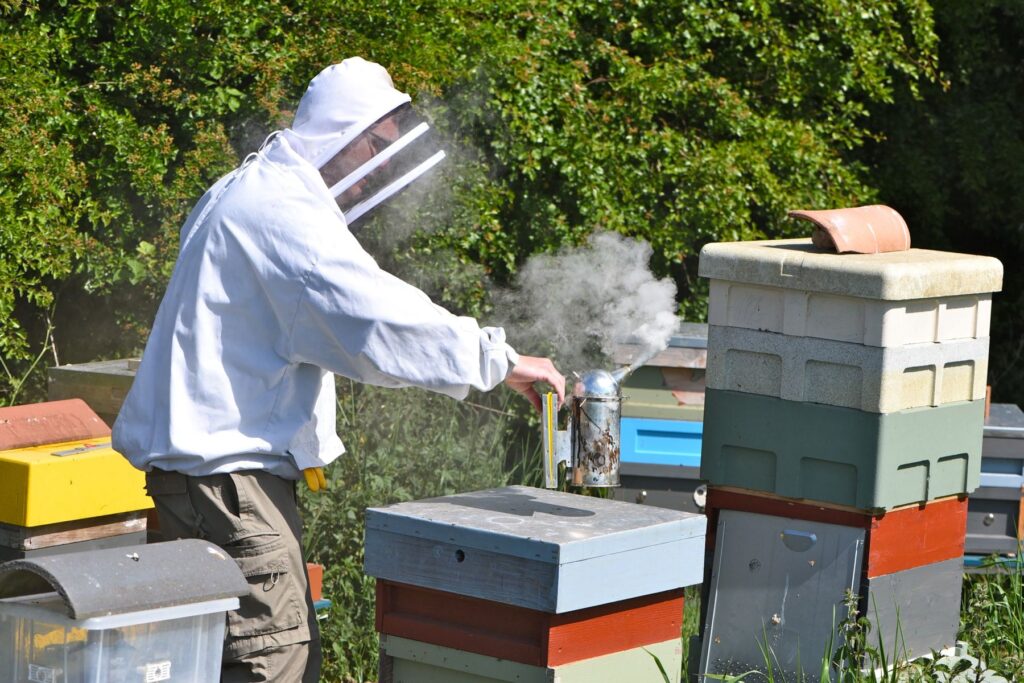
Half Length (Jacket)
This is what I use. I picked up a “seconds” version at one of the beekeeping events for about £40 from the Sherriff stand. Bargin!
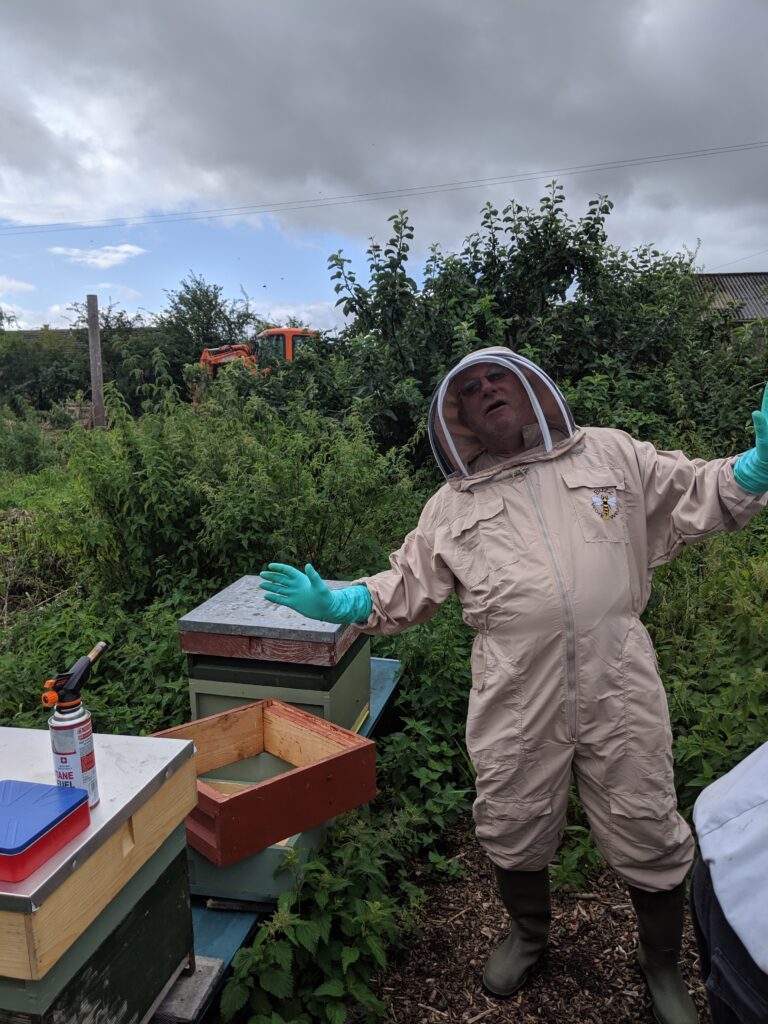
Full Length (Suit)
Fully suited and booted. This one from “Simon the Beekeeper”. The quality is good for the money, but if you were to buy a hard wearing one then you would be set for life.
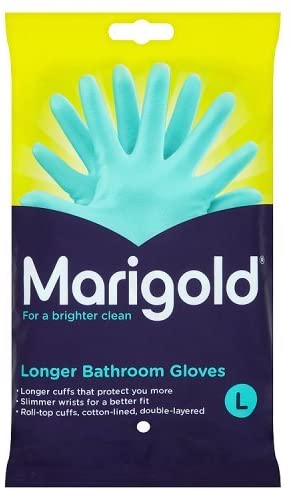
Gloves
I do not recommend leather or thick gloves. They make you less cautious, and more liable to crushing bees, and they can’t be washed and therefore pose a disease transmission risk. I recommend getting to the stage where you can handle a colony without gloves, however….
If I need to wear gloves, I use marigold long-cuff bathroom gloves. They are excellent and only cost a couple of pounds a pair.
Smoker
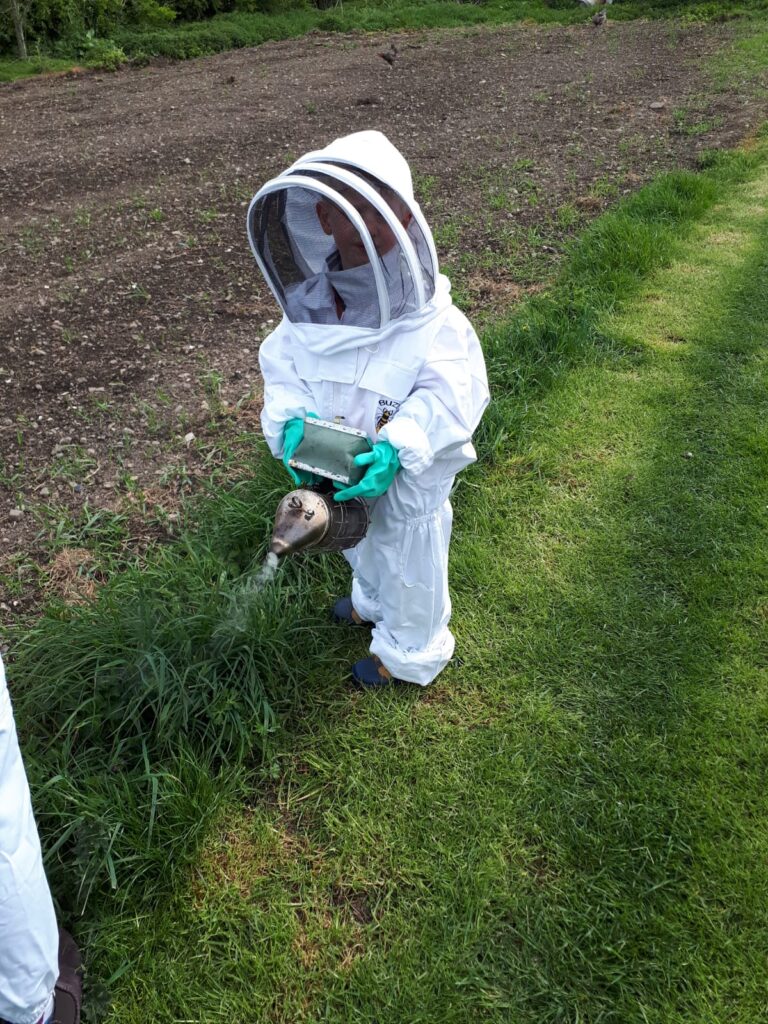
Good Quality Smoker
Spend a reasonable amount of a good smoker and it will last a lifetime!
Anything from a generic galvanised smoker to a Rauchboy
Hive Tool
They come in all shapes and sizes. I strongly recommend going to a supplier or one of the beekeeping events and actually handling the tools to see which you like best.
Hive
How long is a piece of string.
Here is a link to the amazing Dave Cushman website (run by Roger Patterson) which gives information on the various hives (why reinvent the wheel).
What do I use? – British National hives.
You can spend a LOT of money on a beautifully put together, western red cedar hives (and they are beautiful). However, Thorn and Maisemore sell “seconds” during sale events that are English cedar and have a few more knots in the wood but are perfectly good hives and highly recommended (photos below from Thorne‘s website)
You also need frames and foundation. The frames can be bought for reasonable money at the sale events (often 50 for around £30). Wax is more expensive. Often local beekeeping associations club together to bulk order. I’ve had wax foundation from both Thorne and Maisemore and have been happy with both.
| Equipment | Cost |
|---|---|
| Suit | £40 to £240 |
| Gloves | £5 to £35 |
| Smoker | £15 to £50 |
| Hive Tool | £5 to £15 |
| Hive | £150 to £550 |
| Total: | £215 to £890 (plus you need bees…) |
Stuff you DO NOT need to buy!
- Bee brush (only use if you like being stung)
- Hive stand- use a pallet or milk crate or breezeblocks and wood. Anything that lifts the hive slightly off the ground.
- Smoker fuel- go for a walk in the woods and collect deadwood, or save egg boxes to burn. Anything that gives a dense, cool smoke.
Suppliers I’ve used and like… (in alphabetical order)
If you are buying bees, make sure they aren’t imported!
*Supplier (what I’ve bought from them)
- Abelo [York] (hives/frames/wax moulds)
- BS Honeybees (Twinstock Nuc Box)
- Maisemore Apiaries (nucs/frames/wax foundation/jar labels)
- Sherriff (bee jacket)
- Simon the Beekeeper (bee suits for visitors)
- Thorne (hives/frames/wax foundation)

